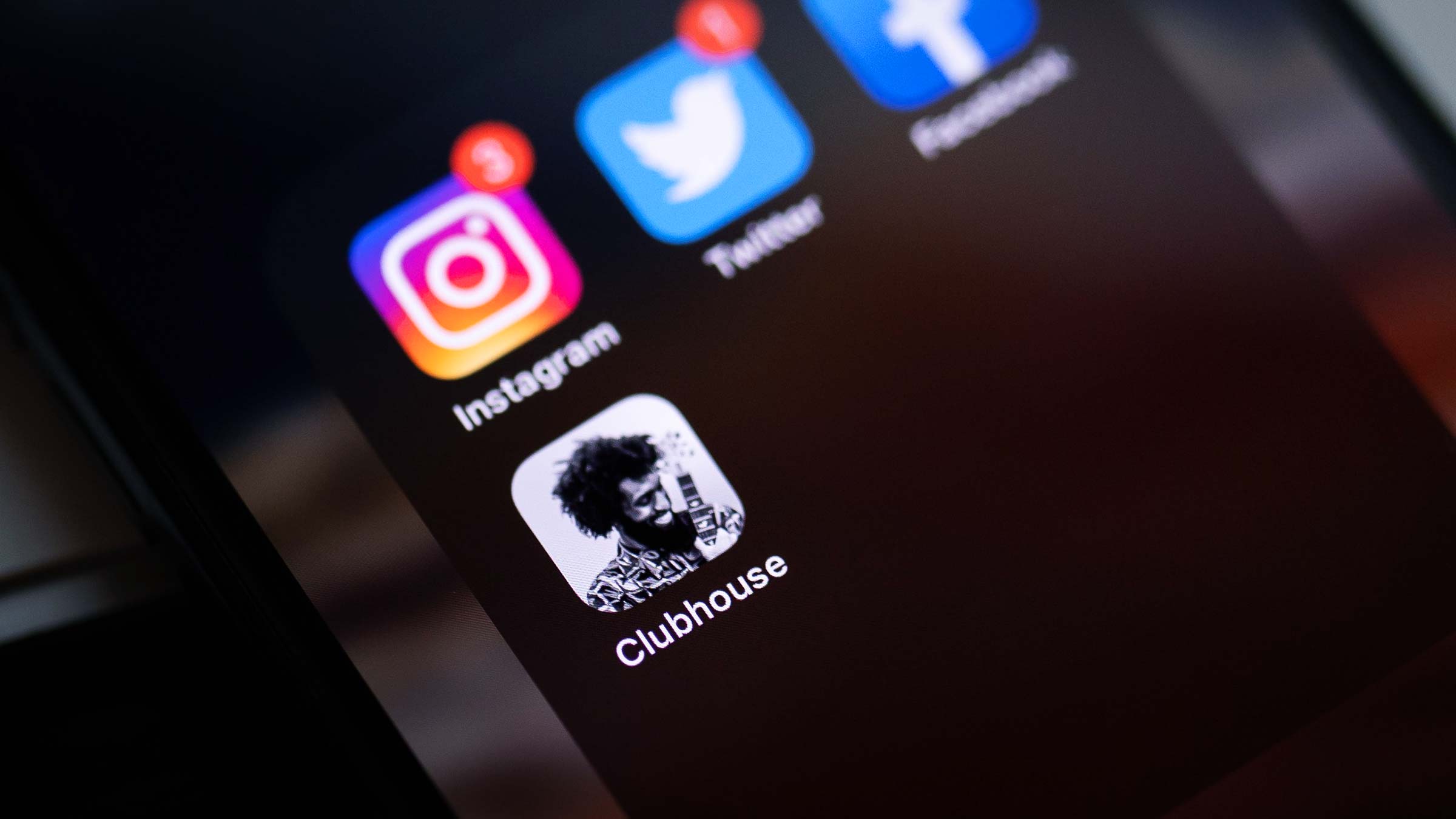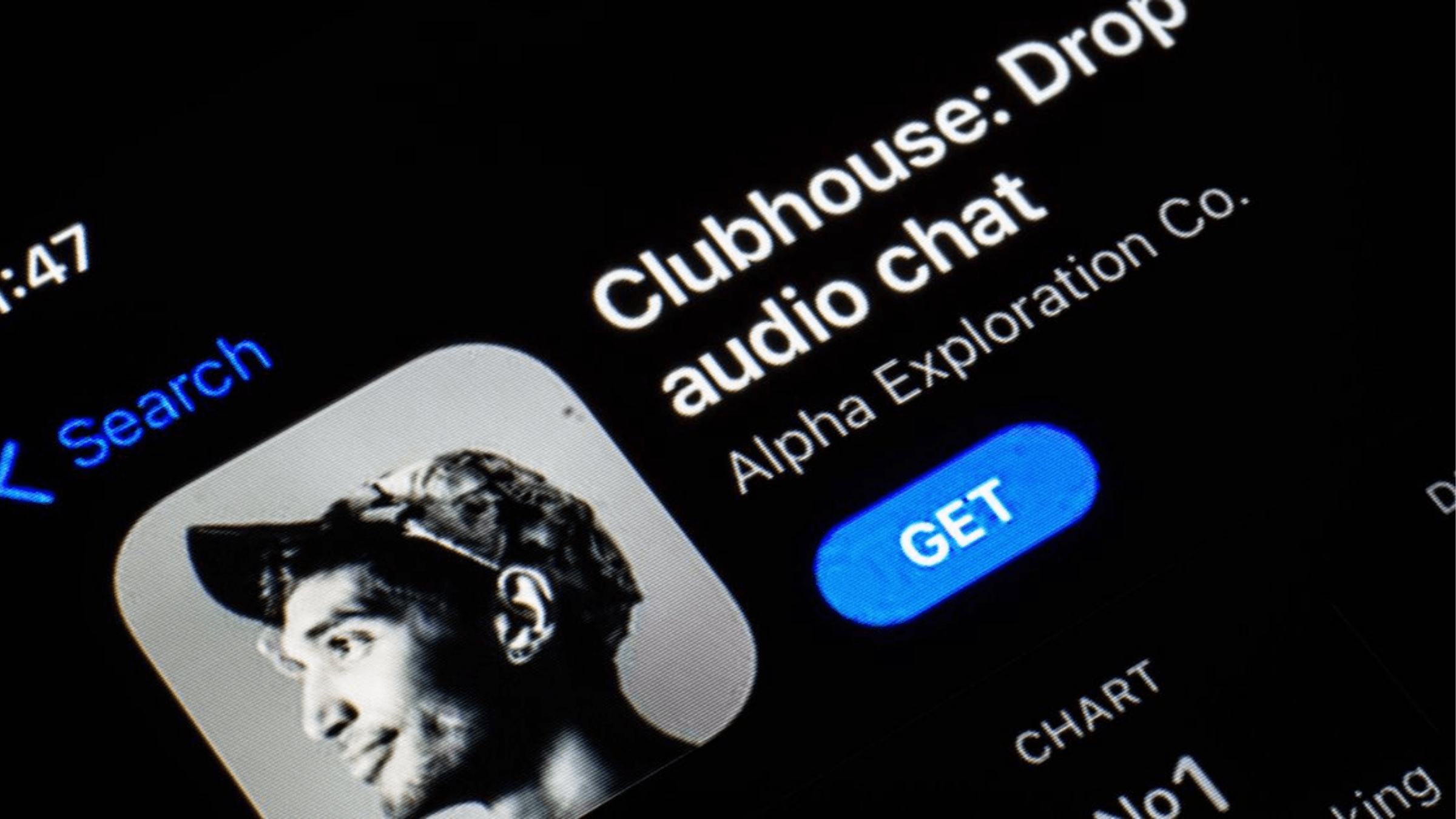I suffer from a serious case of FOMO, and I get anxious if there’s anything trending that I don’t know about. So a month ago, when the Founder of Secret Cinema Fabien Riggall offered me one of his five exclusive invitations to join Clubhouse, I jumped at the chance. I hate to be left out of the next big thing. Since that time, this social media app – used by business leaders and political thinkers to host audio-based discussions – has become near impossible to ignore. Clubhouse is fast becoming a global phenomenon.
The social network launched in March 2020, providing an outlet for a world trapped indoors. In that time, Clubhouse has garnered millions of users and raised a $100m financing round from venture capital firm Andreessen Horowitz that reportedly values the business at over $1bn. Clubhouse was launched by founders Paul Davidson (who had already founded Highlight which he sold to Pinterest) and Rohan Seth (known as a technical genius and serial entrepreneur) who have been perfecting digital products for nearly a decade.
“Powered by an exclusive, invite-only model, the company has burst onto the scene without utilising mainstream marketing channels, instead relying on word-of-mouth and the universal desire to be involved in the next big thing.”
But despite being one of the world’s fastest-growing social media apps, Clubhouse remains a relatively unknown entity. Powered by an exclusive, invite-only model, the company has burst on to the scene without utilising mainstream marketing channels, instead relying on word-of-mouth and the universal desire to be involved in the next big thing. Achieving virality in this manner is not a new phenomenon. Time and time again, winning organisations have reaped the rewards of building a highly coveted brand which offers social capital to its users.
One such organisation is Shazam, whose former CEO Andrew Fisher I had the privilege of catching up with for last week’s column. “We obsessed about what we called democratic advocacy,” he told me, “which is the phrase we used for when someone discovers a new product or service themselves, and sees this as social currency or a badge of honour. If they derive value, they will become your advocate. This is one of the most powerful ways of building a mass audience.”
Andrew’s theory of democratic advocacy can be used to explain Clubhouse’s success. Indeed, the app has certainly built a mass audience. While its invite-only model allowed it to exist up to now in a buzzy Silicon Valley bubble, where venture capitalists and tech founders discussed the hottest digital trends, today the business is quickly entering new communities, providing a platform for marginalised voices and a safe space for creators and thinkers to have their voice heard. Indeed, the app’s heart and soul is its creators and the members who invite their friends and organise rooms – many hosting weekly shows. With no ads, commercial breaks or interference, the experience centres around community and quality rather than clicks and volume.
It’s not difficult to understand Clubhouse’s popularity. The cancellation of live events due to Covid-19 certainly has a central role to play. The app is also more suited to careful debate than its social media counterparts, with live audio naturally lending itself to nuance and clarification. For those who tune in to hear discussions, there’s also the obvious benefit of being able to dip in and out and to multi-task. In a ‘cameras on’ world of Zoom, and sometimes feeling ‘zoomed out’, I have relished listening to discussions while walking on the treadmill or cooking. It can also act as an activity, like attending a discussion group, and if listeners want to participate, they can ‘raise their hand’ to ask a question.
However, gaining traction at such a rapid rate brings significant risks, and the question remains whether Clubhouse can grow safely and sustainably. Lessons can be learnt from the rise and fall of Houseparty, one of the most popular apps from the first lockdown which quickly saw its demise after rumours of a potential cyber-attack.
“Lessons can be learnt from the rise and fall of Houseparty, one of the most popular apps from the first lockdown which quickly saw its demise after rumours of a potential cyber-attack.”
Clubhouse has so far not been immune to difficulties. The app was hit with technical issues following a spike in traffic when Mark Zuckerberg appeared in a room, and many listeners of Elon Musk’s discussion were relocated to a YouTube stream when the room reached full capacity. The business has also been criticised for issues with accessibility.
Looking ahead, a relentless focus on product is necessary to keep users engaged.
Faced with similar risks in building Shazam, Andrew Fisher noted that he and his team “had to build a world-class customer experience, which required a lot of discipline. Whilst we built incredibly complex algorithms and technology, as far as our customers were concerned, we had to keep things as simple and intuitive as possible. Often, less is more in digital experiences.”
In the meantime, I am working on having more JOMO, trying to learn to take a break from social media and to enjoy the pleasure of being alone… even if while listening in!
Moira.benigson@thembsgroup.co.uk | @MoiraBenigson | @TheMBSGroup









